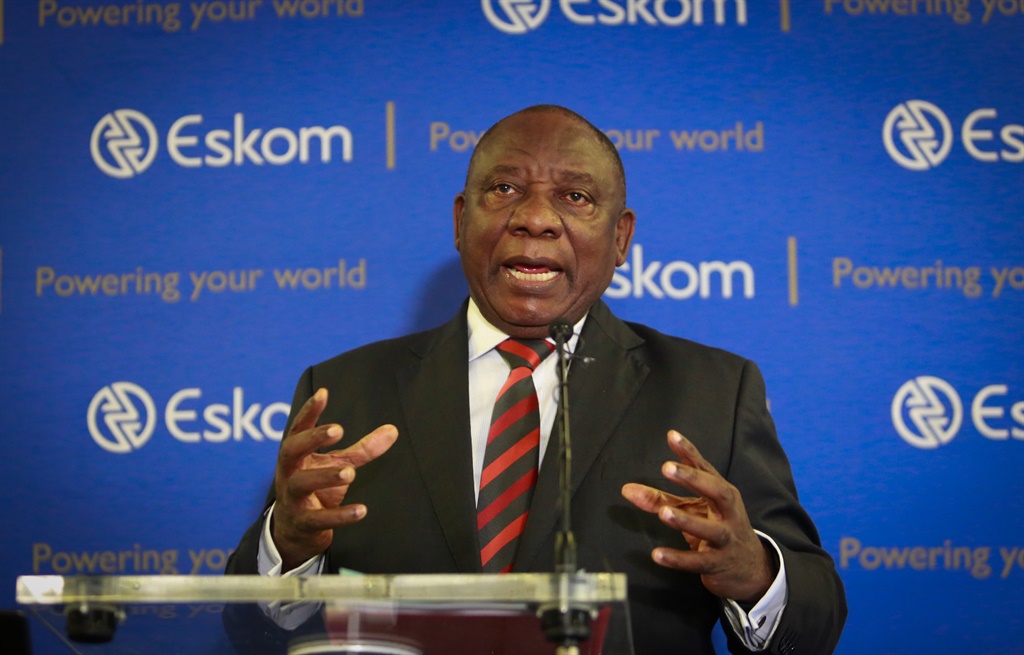
When President Cyril Ramaphosa came into power on the back of a strong positive sentiment (Ramaphoria) there was no doubt his was a mammoth task.
Tackling state capture and revamping a moribund, job-shedding economy would never be easy.
Given his background as a lead negotiator in the writing of the Constitution of the republic and four years as deputy president, it was taken for granted that his understanding of the workings of the state would be his advantage.
But some recent developments suggest he is yet to fully comprehend the workings of government and how to use his executive authority to quicken his reform agenda.
His first known politically costly mistake was his response to an oral parliamentary question on a Bosasa donation to CR17.
That response, would culminate in the ongoing legal battle with Public Protector Busisiwe Mkhwebane.
Ramaphosa's mistake stemmed from his lack of understanding of parliamentary processes and his failure to develop a vetting system for funders.
In his capacity as deputy president he was a leader of government business in Parliament and should have known the head of the executive is not obliged to answer questions related to party-political issues.
However tempting, the president should stay away from engaging in party-politics when he accounts to the nation.
When he stands before Parliament, he accounts to all.
He is above petty politics.
But Ramaphosa walked straight into the Bosasa landmine when he failed to grasp this basic aspect of his job.
That mistake was not the last.
When Ramaphosa was out of the country, fulfilling his international duties in December last year, two things happened on separate occasions regarding state-owned companies.
First, SAA could no longer operate as it was.
The permutations previously discussed in the cabinet wouldn't materialise.
Either it had to be put into business rescue or faces liquidation.
Ramaphosa dictated a letter via the cabinet secretary informing cabinet that after consulting key stakeholders he had decided business rescue was the best option. But the letter addressed to "members of the executive" had one elementary mistake: it was copied to deputy ministers.
The president should know that deputy ministers are not part of the executive and therefore don’t have the same obligation of keeping privileged information as their seniors.
Cabinet discussions and correspondence are classified.
The letter leaked, breaching cabinet protocol.
It's not clear if Ramaphosa reprimanded anyone, has ordered a probe or he had authorised the release of the letter himself.
The second incident was his decision to cut his trip short to return to the country to deal with the Eskom load-shedding crisis.
He succumbed to justified public outrage.
In the process, he forgot that he had a deputy who is obliged in terms of the Constitution to assume presidential duties in the absence of the president.
DD Mabuza was in the country, as was the Public Enterprises Minister Pravin Gordhan and Eskom executives.
Ramaphosa could have instructed them on how he wanted the matter handled.
They could have discussed with him on the modalities of communicating their decisions.
Instead, he returned and, strangely, went into a meeting with Mabuza and Gordhan.
Once the president was back to handle the crisis himself, why would his deputy be present in such a meeting?
The country has many challenges that require the president and his deputy to have a division of labour at any given time.
Ramaphosa risked the possibility that he and his deputy could differ on strategies in front of a minister or Eskom officials.
Fortunately, there were no such difference that we know of emanating from the meeting.
But Ramaphosa's broken undertaking, that there would be no load-shedding until January 13, 2020, triggered Mabuza to raise concerns that the president had been misled.
That statement technically tore into the Eskom board, prompting chairman Jabu Mabuza to quit.
That Ramaphosa's office had denied he had been misled made Ramaphosa look weak. His office came across as if it was unable to coordinate government work at the highest level.
In addition, there's another issue that eats into his credibility: revelations that the "Thuma Mina" concept was conceived by presidency officials for his predecessor Jacob Zuma.
This revelation, so far not denied, undermines the idea we were all enthusiastic about: that the new president has grounded his presidency on a worthy philosophical foundation he himself conceived or was at least conceived by his chosen advisors.
The fact that such detail could leak, not as a matter of historical record for historians to ponder after his presidency had ended, but right now at its inception, suggests he is working with speech writers or advisors who cannot be trusted.
This raises questions about his understanding of power – how to continuously generate and expend it for the effectiveness of his office.
Part of generating power as president is to have the ability to appoint loyal and competent people. They may be having contradictory ideological dispositions - it's important not to be surrounded by yes-man and women - but they should be professionally loyal to the office and to the person who holds it.
Advisors must work on a presidential ideal generated by the president himself. They can give it catch-phrases, but there should be no question about the originator of broader orientation of the presidency.
These examples show the need for Ramaphosa to urgently grasp the workings of the state machinery and understand how to exercise power to realise his political goals, including urgent economic reforms.
The state by its nature is a complex beast that moves at its own pace.
Ramaphosa is wasting the advantage of a clean broom by taking time to get reforms underway and in the process allowing other interests to distract, block or develop other mechanisms to undermine him politically.
On economic reforms, his frustrated Finance Minister Tito Mboweni is doing the unprecedented: publicly decrying the lack of movement in economic reforms, even as Ramaphosa goes around saying he is turning around the economy.
Are Mboweni's social media messages sanctioned by Ramaphosa? If not, what do they tell us about Ramaphosa's grip - or maybe lack thereof - of the executive he leads?
Ramaphosa's consensus leadership and long-game strategy are proving unproductive at this stage given the urgent need for economic change. The country is still largely behind him.
He should quickly correct his mistakes. And he needs to quicken his consultation processes, which do not necessarily have to yield consensus or please everyone before he takes decisions.
In his days as a constitutional negotiator one of the phrases that was popular to break deadlock was “sufficient consensus”. In government now, he must lower the threshold of “sufficient consensus” to quicken decision making.
But this would require him to master the nitty-gritty of state machinery, starting with his office, and use it to fast-track reforms.
Failing which, he could be politically tripped up with ease, thus triggering the kind of instability South Africa need to avoid at all costs.




 Publications
Publications
 Partners
Partners






















